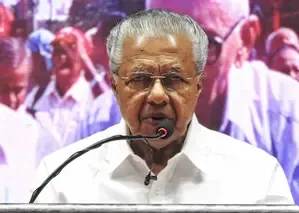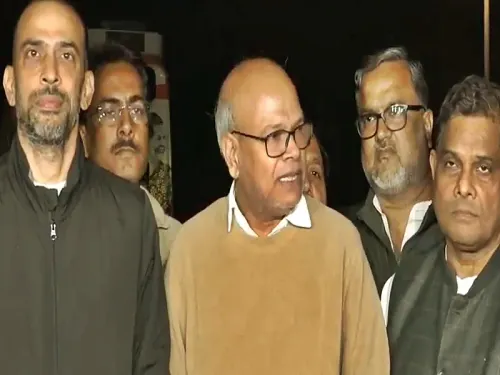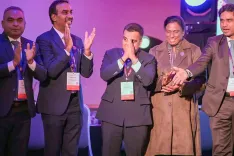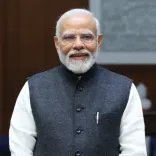What Returns Does CM Vijayan Have from His Foreign Trips?

Synopsis
Key Takeaways
- CM Vijayan must clarify the outcomes of his foreign trips.
- RTI disclosures show no investment agreements were made.
- Kerala's finances are under pressure while funding these trips.
- The presence of family members on trips has drawn criticism.
- Concerns about the state's investment competitiveness compared to neighbors.
Thiruvananthapuram, Aug 15 (NationPress) The Congress party in Kerala is demanding that Chief Minister Pinarayi Vijayan provide a public account of the results from his numerous foreign trips, after RTI disclosures revealed that no investment agreements were made during these visits over the last decade.
KPCC organizational general secretary M. Liju stated on Friday that the CM “owes the people an explanation” following revelations that contradict his repeated assertions in the Legislative Assembly.
According to RTI responses, from 2016 to 2025, Vijayan made 25 foreign trips aimed at attracting investments — visiting the UAE, USA, UK, Japan, South Korea, Finland, Norway, Switzerland, France, Bahrain, and the Netherlands — yet none resulted in a memorandum of understanding (MoU).
This is in stark contrast to his claims in the Assembly regarding investment commitments amounting to hundreds of crores, including a notable assertion of $500 million from the UAE government.
“We have consistently questioned what Kerala has gained from these trips. With authorities confirming the absence of MoUs, the CM is required to clarify,” Liju said.
Most of these trips, apart from the visit to the US, were official delegations financed by the state treasury, costing several crores during a time when Kerala's finances are under pressure. The frequent participation of Vijayan’s wife, daughter, and grandson in these trips has also attracted criticism.
Former IT advisor to ex-CM V.S. Achuthanandan, Joseph C. Mathew, noted that the issue extends beyond foreign visits to the results of domestic investment conclaves.
“Compared to neighboring states, Kerala is significantly behind in attracting substantial investments. If the government’s claims of new establishments were true, unemployment should have been eradicated by now,” he commented.
Mathew also recalled Vijayan’s justification regarding his grandson’s involvement in overseas trips: “It’s because he is my grandson that he is accompanying me.”
As of now, there has been no official response from the CM, and the controversy is likely to heighten political scrutiny regarding the efficacy of his foreign engagements.









